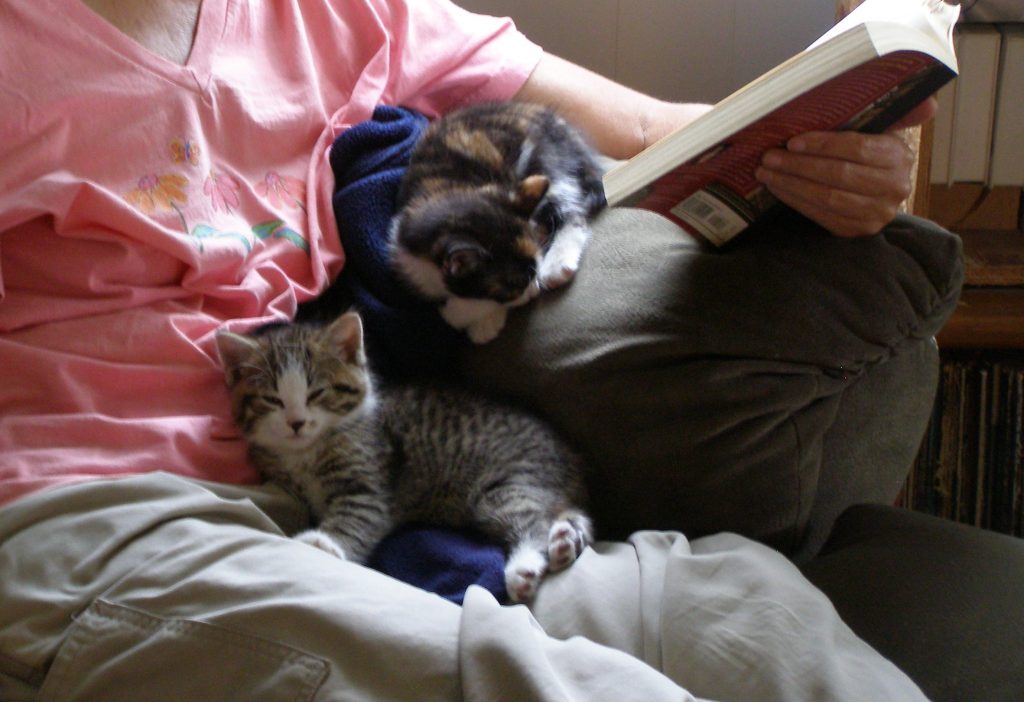Leave It Better Than You Found It
I read an article about using this holiday season to clean up messes, not just physical messes, but relationship messes.

This struck me because one of the things my mother taught me, both by example and frequent repetition, was to leave the planet better than I found it. Not fixed or transformed, but a little bit better. I always loved that. It made me feel I had the ability to do something good.
This article suggests that we leave every relationship better than we found it in every interaction. A new twist on an old lesson.
So, what does that mean?
If you’re like me, your first impulse is to go into full people-pleasing mode. But people pleasing doesn’t make relationships healthier. In fact, it has the opposite effect. A healthy relationship is based on two healthy participants, and people pleasing enables emotional tyranny on the one hand and inauthenticity and burnout on the other.
Been there, done that. Not doing it again.
If we’re going to leave our relationships better than we found them the last time we looked, we need to know what a healthy relationship looks like in the first place. This all by itself can be quite a challenge. A good way to check on the state of our relationships is to ask ourselves if we’re happy in them and our needs are being met. Our feelings will quickly tell us if our connections are healthy or not.

Hopefully, most of our relationships are closer to healthy than destructive, so if we want to leave them better than we find them all we need to do is find at least one way to strengthen them.
Relationships are tricky, because we only have 50% of the power in any given connection. We can’t force others to change their behavior, communicate more effectively, or otherwise meet our needs. All we can do is focus on our own behavior and communication skills. If our relationship is toxic, we can’t clean it up alone.
Here’s the hardest thing of all: it may be the best way to make some relationships healthier is to end them.
I know. Let’s all wince and cringe together. Ready? One … two … three! Wince. Cringe.
If there’s anything worse than ending a relationship, I haven’t found it yet.
Still, setting aside loyalty, duty, obligation, fear, investment, love, and all the rest, if two people are making each other miserable, or even if just one person is miserable, the relationship is destructive and someone needs to end it.
We could be that someone. And when I say “end it,” I don’t mean ghosting, lying, making excuses, shaming and/or blaming the other party, changing our phone number or moving out of state. I mean telling our truth, gently, clearly and firmly: “I’m feeling unhappy in our relationship. I want us both to have healthy, supportive connections. I’m ending our relationship so we have room for someone who’s a better fit. I value the time we had together.”
An unhealthy relationship is not better than none at all.

Many of our connections are not toxic, however, and coast along fairly well. In that case, how do we leave them better than we found them the last time we interacted? Not perfect, but a little bit healthier, juicer, happier?
I’ve been thinking about this question because I’d like to apply it to my relationships this holiday season and beyond. It occurs to me that making relationships healthier doesn’t necessarily mean making them more comfortable. I know much of what has made my own connections so dear in the last few years has involved a lot of discomfort as I risk being authentic and vulnerable. I also know from my own experience my strongest and healthiest relationships are truthful, and hearing the truth about another’s experience of us, or responding truthfully to hard questions, can be quite uncomfortable. This kind of discomfort fosters trust, respect, and strong relationships.
Here are some ways I have the power to leave my relationships better than I found them:
- Am I giving time with my loved ones my full presence and attention?
- Do I listen at least as much as I talk?
- Do I rush in and try to fix problems belonging to others or ask good questions, provide resources and tools, and convey my belief that my loved ones can manage the challenges in their lives?
- Do I take everything my friends and family do and say personally?
- Do I make assumptions and jump to conclusions or ask for more information?
- Do I maintain effective boundaries and honor the boundaries of others?
- Do I express my gratitude and love to those I’m connected to?
- Do I have expectations of others?
- Am I highly invested in the outcomes of choices others make?
- Am I being honest about who I am and giving freely from my authenticity?
- Can I be wrong? Do I know how to say I’m sorry? Do I take responsibility when I’ve hurt someone? Can I accept an apology? Can I practice forgiveness?
- Can I be honest about my feelings?
- Do I use my power to make others bigger or silence and diminish them?
- Do I keep my word?
- Am I able to give and take gracefully and equally?
- Do I value the needs of others as much as I value my own?
- Can I bless the ground between us?
I’m surprised how long this list is, even without much contemplation, and reminded of how powerful we are as individuals to influence those around us.

We humans are highly social, and we all need healthy connections. The most valuable gift we have to give others and the world is ourselves. Nothing we can buy comes close. Working on relationships is messier and more complicated than buying a gift, and requires us to be honest and vulnerable. Yet we are the gift that can keep on giving to those around us, and they are the gifts that can keep on giving to us.
Cleaning up messes in the world and in our relationships might be as simple as picking up trash in our neighborhoods or reaching out to someone in our lives today and telling them how much we appreciate them. Or perhaps we have a big mess we’ve been putting off dealing with, or a relationship that needs to end.
As always, we mustn’t forget about our relationship with ourselves. When we go to bed tonight, will we be a little happier and healthier than we were this morning? If our relationship with ourselves is fundamentally broken, we don’t have much to give others. The list above works equally as well when applied to the way we treat ourselves.

Hate Speech or Haters Speaking?
As so often happens, there are several strands to this post. Chronologically, the first strand was this podcast from The Minimalists about race relations. I don’t usually take the time to listen to podcasts, but I follow The Minimalists and this discussion was a perfect antidote to the current disturbing headlines and media rhetoric. It made me think and provided some insight into the problem of racism. In the podcast, there’s a fascinating discussion about hate speech in which a suggestion is made that it’s not a real thing.
What?

I know. That was my reaction, too. Hate speech is everywhere, right? On social media, on signs and bumper stickers, in the mouths of ordinary people, and in the media. It’s true that words are frequently used hatefully as we talk and write. Language, remember, is a symbolic system used to convey meaning. Speech, or writing, for that matter, is simply the use of language. Speech is only a small part of conveying information, though. Nonverbal communication is more important than the actual words we use, things like volume, intonation, emphasis and body language.
Hate speech is simply speech used to convey hate. The words alone are mostly neutral. The speaker or writer are the sources of the hate.
It’s trickier even than that. Some common, perfectly neutral words like “uterus” are now classified by some as hate speech. This is clearly ridiculous. There’s nothing hateful about the word. When I use it, I’m certainly not feeling or intending to communicate hate. The hatred, if it exists, is in the listener.

Hateful people speak and write hatefully, and are predisposed to hear hate when none is intended. People who are not haters use the same words to convey simple meaning, and are surprised and incredulous when accused of engaging in “hate speech.” Fortunately, being accused of hate speech doesn’t make it so.
Let me be clear I’m not poking at things like mascot names that demean American Indians, or use of words like “nigger.” I don’t support either, ever, for any reason. When a group of people protests that such terms are hurtful to their culture, history, and sense of worth, we need to be respectful. Some words are pejorative and ugly, and they’re meant to be. Language is not static; hundreds of slang words and idiotic labels are created and used every year, some with a specific intent to convey hatred and contempt. What I’m focusing on is standard language, words we use in everyday settings and circumstances with dictionary definitions.
I’ve thought a lot about this. Is there such a thing as hate speech, or is it simply that hateful people use language to say and write hateful things? In that case, the problem is people hating, not the words themselves.
That was the first thing.
The second thing was our recent adoption of a pair of kittens. We both love cats, and our old cat died over the winter, so we had an empty place in our hearts, which these two have filled magnificently.

It’s been a long time since I’ve had babies to take care of, and it brings back a flood of memories and feelings, especially my desire to be a “good” mom. I notice how important it is to me that they be happy, healthy, safe, well-bonded and learn to differentiate between bare skin and clothing as they climb, play and explore. I want to do it right. I want to do it well. I spend time evaluating my patience, my efforts to keep them safe, my performance as litter box cleaner and fresh water procurer, my roles as playmate, limit-setter and comforter.
Am I a good kitten caregiver?
The third strand in this post comes from a book, Chocolat by Joanne Harris, who is one of my favorite writers.
“I don’t think there is such a thing as a good or bad Christian,” I told him. “Only good or bad people.”

As I read that, I thought about the podcast I’d listened to, and my conclusion that perhaps there’s not such a thing as hate speech, just words used by haters. My practice of minimalism has taught me to simplify wherever possible, and it occurs to me we’re all many things to many people in life, and most of us are trying to be “good” friends, partners, family members, employees, and probably an infinite number of other roles. We fragment our identities into all these shards and pieces. What if we let go of all that and focused on being “good” humans? Wouldn’t being a “good” human across the board take care of everything else?
Then, of course, we have to decide what we mean by good and bad, but I’ve already opened that can of worms a couple of times, so I’m not going to go there again. Let’s forget about the term “good,” which means everything and nothing.
If I practice love instead of hate (including with myself), if I strive to be tolerant, respectful, authentic, responsible and keep my integrity intact, then I bring those qualities to everything I do every day, whether I’m working, hanging at home, playing with kittens, spending time with friends, interacting with family, or buying groceries. I don’t have to worry about being a “good” anything. I simply strive to be the best human I can be, whatever the circumstances, whatever the context.
Let it be said that not everyone has a desire to be “good.” I am all too well aware assuming everyone has my agenda is a fatal mistake. There are those who would love to see the world on fire.
Still, I believe most of us are trying to be a “good” … whatever, according to our definition of good. Sadly, especially when we think about religious and political pieces of identity, this is often where the hate begins.
It’s complicated. People are complicated. We’re also devious. Debating about what is and is not hate speech is a diversionary tactic leading nowhere. The issue is not words. Words don’t hate. The issue is our own hatred toward ourselves and others, and for that we are responsible. The issue is not our willingness or ability to fulfill expectations of what it means to be a “good” fill-in-the-blank. That’s nothing but pseudo self. Life is not a performance. The issue is what kind of humans do we choose to be? What kind of humans are we?
Certain ways of thinking support and feed my perfectionism, and other ways of thinking starve it. Being concerned with being a “good” this, that and the other is a lot of anxious work and encourages perfectionism, pseudo self, people pleasing, and a whole host of other unhelpful behavior patterns.

Approaching each day and activity with a desire to be my best and respect the needs and feelings of myself and others is not only simpler; it leaves me with energy and space to have fun, to love others wholeheartedly (even when they do climb up my bare leg with tiny pin-sharp claws), and to enjoy life.
I talk. I write. I listen to feedback about how my words affect others. I know I’m not a hater, and I don’t allow others to project their hatred onto me. I accept I have no power over readers or listeners who are determined to misunderstand and twist my words into hatred. I practice respect for myself and for others. Words used by haters divide and leave deep wounds. Words used by non-haters have the power to connect and heal.
If we are not humans who hate, our language will not be hateful. If I practice love, responsibility, patience, and tolerance, I’m a good-enough kitten caretaker. If I strive to be a “good” human (according to my definition), then I can forget about the individual performance of all those fragmented pieces of my identity.
I See You
We’re seeing people masked on the streets, in the stores and in workplaces. At the same time, I’m noticing how effectively coronavirus has stripped away the pseudo self of so many people.

Masks on. Masks off.
Pseudo self is a survival mask, often developed in childhood from the feeling that who we really are is unlovable. Some people create a false persona for power and control. Think of the wolf pretending to be Little Red Riding Hood’s grandmother.
We all have a pseudo self to some degree. Most of us can deal with difficult family members, coworkers and others with a modicum of manners, tolerance and kindness most of the time. We can cooperate and collaborate when required. We can be professional. Hopefully, we also know how to be real with those we trust and love; how to be angry, how to be sad, how to let off steam.
The difficulty with pseudo self occurs when we lose touch with who we really are and our mask becomes permanent rather than something we choose to take off and put on. Creating a pseudo self and retreating behind it permanently means we’re never properly seen, never properly known, never properly connected.
Masks on. Masks off.
Coronavirus is stripping away pseudo selves and revealing the truth of who we are, how we operate, what our hidden agendas and priorities are, our paranoia, our fear, our anxiety and compulsivity, our rage, our unfinished business and our relationships with money and authority. We are distracted and distressed, and our nice, shiny, well-behaved and civilized pseudo selves are slipping, even as we don masks.

This reveal is fascinating, and it’s everywhere, in our homes and workplaces, in our communities and on social media and TV. Especially on TV. Blame games. Competition rather than cooperation. Gaslighting. Ignorance on display. Lies. Distortions. Conspiracy theories. Disinformation. Paranoia. Ill-concealed fear.
You just can’t fix stupid, and stupid is what I’m seeing behind quite a few pseudo selves.
Masks on. Masks off.
Our leaders seem to feel we’ve reached a Y in the road. Are we more interested in political power and the economy, or are we more interested in saving lives? Some turn one way. Some turn another way. Right now, that stark (and false) choice is not hidden behind distractions and polished bombast. It’s right out there in front of us in every update and news conference.
Are we a global people who cooperate to save lives, or are we separate, competitive political entities who try to outbid one another for inadequate resources? Are we human beings concerned with dignity, quality of life and compassion, or are we robotic consumers addicted to a bloated, unsustainable capitalistic system? Do we care more about the lives of those around us or our own entitlements?
Do we share power, or do we grab all we can get during this crisis?
Masks on. Masks off.
I wonder if we’ll ever fully be able to grasp the ways in which this pandemic will reshuffle our personal decks. What are we learning about our families, friends, neighbors, coworkers and leaders? What are we learning about ourselves, the ways we deal with stress and anxiety, our resilience and adaptability, our priorities and concerns? What are we learning about what really matters to us and to those around us?
How will enforced working from home and non-traditional education change the way businesses and education work when the pandemic is over? How much bigger will we individually become as so many of us learn we are not our work? Coronavirus is giving us a crash course in being rather than doing or having. How many will graduate from this experience with a stronger, more peaceful sense of self? How many will fail to graduate?
Unexpected, stressful times like these bring out the real in us. We can’t prepare for such times or see them coming. We can’t pretend our way through them. Our choices and beliefs are visible to others. We are revealed. We are seen. And so are they.
Masks on. Masks off.

The masks we wear for protection against the coronavirus conceal much of the lovely expression of the face. As I interact with masked people, I feel bereft and disconnected, unable to fully communicate and connect. I miss seeing the faces of my friends, colleagues and the strangers around me. Something about masks feels dehumanizing and isolating.
Still, I think this is another gift of coronavirus, this stripping away of all the nice-nice pretty-pretty pretense. I’ve always loved real, my own and the real of others. I suppose pseudo self has a useful place in a social context, but only a limited useful place. The ability to be authentic, to my mind, is far more useful and productive. Coronavirus is a great leveler. It doesn’t care about our clothes, our hair, our makeup, our bank account, our title or position, or our presentation in general. It doesn’t care about our politics or whether or not we believe it’s real. It doesn’t give a damn about the economy. All we are is a potential place in which to thrive and multiply. Our pseudo selves cannot shield us, hide us or help us survive this virus.
This pandemic is a fact. It’s real. It’s happening. Masks on or masks off, our authentic selves are showing. I see you, and you can see me.
Nice to know you. Be well. Stay safe. Raincheck on a hug or handshake.
Restraint
An article in my news feed caught my eye this week: 7 Psychological Superpowers Few People Have That You Can Use to Set Yourself Apart. It sounded interesting — and it was!
The author proposes restraint as a superpower. Oxford Online Dictionary defines restraint as “unemotional, dispassionate or moderate behavior; self-control.” The ability to manage our own behavior is an important aspect of emotional intelligence.

Understand this does not mean making ourselves small, or silencing ourselves or others. It’s also important to think of restraint as an internal control. We have no power (usually) to restrain others, but we can develop self-restraint, which may influence others to be more restrained in their behavior.
As I think about restraint, it has two aspects. One is the choices we make as we interact with others. The other is the choices we make about our own attention; for example, we can learn to refrain (or restrain ourselves) from taking everything so seriously? This kind of restraint is invisible to anyone else, but significantly changes the quality of our experience and life.
I’ve noticed, as I work with this blog, how the vehicle of social media seems to encourage saying more and meaning less. We seem to have a need to share our most mundane activities and decisions as though they’re filled with meaning.
A good example is the TLDR (too long, didn’t read) trend, which has long fascinated me. As I navigate through the Internet, reading my news feeds, researching and exploring interesting links, I often stop reading articles and essays before finishing them. Sometimes because I don’t have the time right then to do it justice. Sometimes I’m finding no value in it.

It never occurs to me to make a comment indicating why I made the decision to stop reading. If I’m too busy to read a lengthy piece, why on earth would I pause to say TLDR about it, either aloud or in writing? Why is that important? Why does anyone care? Is such a comment a passive-aggressive way to say the writer is too long-winded? Or that the reader has an important and busy life? Or that literacy is elitist? It seems to me an utterly useless comment.
I also think it’s fun when people write comparatively lengthy comments about why they didn’t read. I have the same set of questions there. It’s impossible to take feedback seriously or have a good discussion with someone who hasn’t read the piece, so why bother saying anything at all? We read what we’re interested in, and we don’t read what we’re not interested in … don’t we?
As we become more embedded in social media and texting technology, we act as though If we have the ability to say something, we must. But does having the means to constantly share our thoughts and choices mean we should? Is it useful? Is it truly connecting? Is it meaningful?

I’m amused and appalled by modern dating. Younger friends and colleagues inform me the norm now is to exchange frequent texts throughout the day in even a first date relationship. Romantic, meaningful texts like:
“How was your commute?”
(Icy. It’s February in Maine and it snowed yesterday, you jackass!)
“How’s work?”
(Distracted and interrupted because you keep texting me about nothing, Dude! You’re not a swimmer, you’ve never been here, and you don’t know anything about my job. What can I text you about work? Nobody’s drowned yet today. The pool is cloudy, and we don’t know why. Send chocolate!)
The parenthetic replies are mine. My friend was much kinder and more tolerant! Apparently, however, if texting like this doesn’t happen, one or another of those involved are hurt, or feel rejected or otherwise insecure.
Gah!
It makes me smile to think of restraint as a superpower, but maybe the writer is on to something. The article did make me think. I’m more comfortable listening than talking, but it’s evident after a few hours at work how lonely so many people are. They talk about their pets, their families, their health concerns, food, their pain, their history, their financial struggles, their work, their gardens, and the ice in their driveways. Sometimes their conversation is long, rambling, and interminable. I’m filled with compassion for them.
Many people of my generation and older are uncomfortable with texting, e-mail and social media. In fact, e-mail is now used much less frequently than messaging or FaceTime. My 30-something kids are scornful of e-mail and those who use it. They much prefer texting, which I do with them for the sake of staying in touch, though it’s deeply unsatisfying for me. I’d rather write long e-mails or talk on the phone (if I must; I hate talking on the phone!).

Nothing replaces actually being with them.
People crave face-to-face conversation and contact (FaceTime doesn’t count), contact that can’t happen in a text with emojis. They’re so hungry that when they get it, they have no restraint at all. Everything comes out. Being “connected” through technology appears to be a toxic mimic for what we really need.
I wonder if part of what drives younger generations to compulsively send words into cyberspace is the same hunger for authentic connection, though unrecognized. In their loneliness and isolation, they send more and more impulsive, unedited, unrestrained words out into the world, longing for meaning, connection, and validation, but having no idea their extreme oversharing is making them less connected, not more.
Superficiality is not connection. The ability to be in constant technological contact is not necessarily intimacy, security, love or meaningful in any way. Restraint seems to be a lost art. We’re better at it when interacting in real time and place than we are online, where it appears nothing is too mean or hateful to say, but we all say an awful lot of nothing.
I’m disheartened by how easy we are to manipulate, from click bait to disinformation to trolls. The Internet and tech provide us with endless tasty poisoned bait to nibble on, and we pick it up every time. Stimulate our fear, guilt, outrage, defensiveness or paranoia, and we’re hooked into long, pointless debates and arguments, competitions over who gets to be right, and spending our time engaging with the world in a way that makes us and our relationships neither healthier nor happier, but is probably quite satisfying for all the Cluster B and otherwise destructive, manipulative folks out there with agendas for power and control.
The mice in our house are smarter than that. They’ve figured out how to lick the peanut butter out of the trap without triggering it.
So much for human supremacy!
We all have feelings and impulses, and most of us have said things we regret later. I’m not suggesting it’s wrong to be lonely, or to want to be seen or talk things out. I do wonder sometimes if technology is taking us farther and farther from our ability to participate in healthy, authentic relationships, however. Publicly documenting our every move, choice and experience (with pictures!) and participating in the culture’s indiscriminate oversharing makes me wonder where this road will take us. We’re getting very skilled at monologues. Real discussions and conversations in which people both speak and listen? Not so much. We spend more time waiting to speak than listening and attempting to understand.
After reading this article, I’m paying more attention to what I say, and why, and to whom. The point of language (a symbolic system for sharing meaning) is communicating. If we have nothing meaningful to say, why are we speaking (or writing)? (What is meaningful? Who gets to decide? Never mind. That’s for another post!)
Why is just being silent or present as a listener or reader not enough? Must we find something to say about everything to everyone? Do we cease to exist if we’re getting no attention or validation or have no comment? Does everyone need to know about our TLDR choices? Do our private lives need to be public plays with stage directions?
